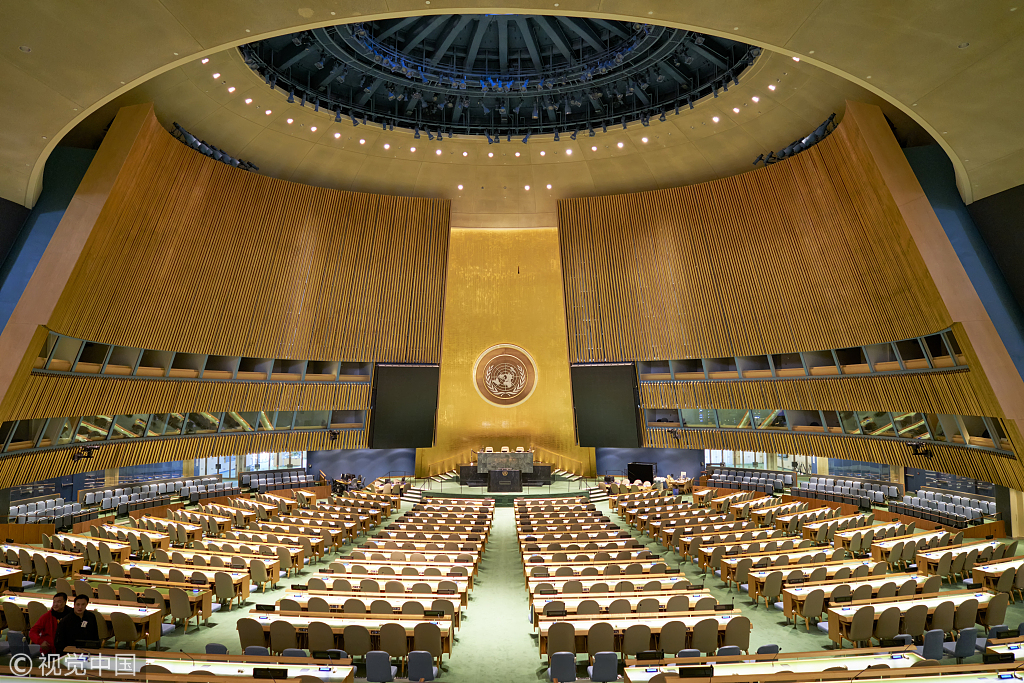
(File Photo: VCG)
Representatives from around 10 missions to the United Nations (UN) and officials from different UN agencies discussed with Chinese experts here Wednesday to find out ways to facilitate South-South cooperation.
The United Nations Office for South-South Cooperation (UNOSSC) and the United Nations Development Programme (UNDP) co-organized a Global Thinkers Dialogue with the China Center for International Knowledge on Development (CIKD).
"South-South cooperation enables us to build our economies based on the experience of others," said Dr. Sen Gong, executive vice president of the CIKD. "This think tank network provides new options for countries who want to scale up development while preserving their independence."
The dialogue was organized under the umbrella of the South-South Global Thinkers: the Global Coalition of Think Tank Networks for South-South Cooperation initiative, which was launched by the UNOSSC and the UNDP in 2017 as a joint effort to draw on the high-quality expertise of academic institutes and to develop a platform for South-South cooperation research and knowledge sharing.
The informal round-table discussion featured interventions from representatives of UN member states and entities, as well as civil society. Participants agreed on the need for better platforms and systems to generate and disseminate knowledge on South-South and triangular cooperation.
In her closing remarks, Simona Marinescu, director of the Development Impact Group of the UNDP, stressed the importance of high-quality research, and in this regard commended China for its commitment to South-South knowledge exchange.
The establishment of the CIKD was announced by Chinese President Xi Jinping at the UN Sustainable Development Summit in September 2015.
It provides a platform for various countries to research and exchange development theories and development practices that suit their respective national contexts.


